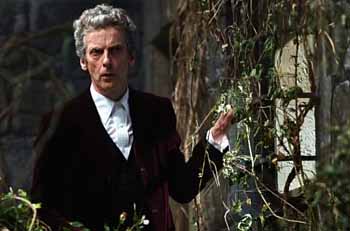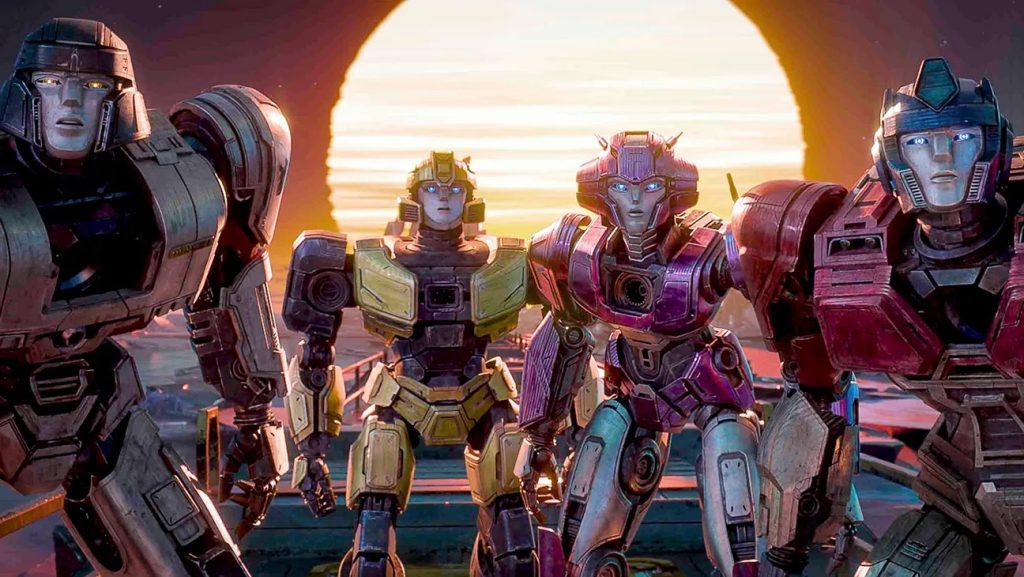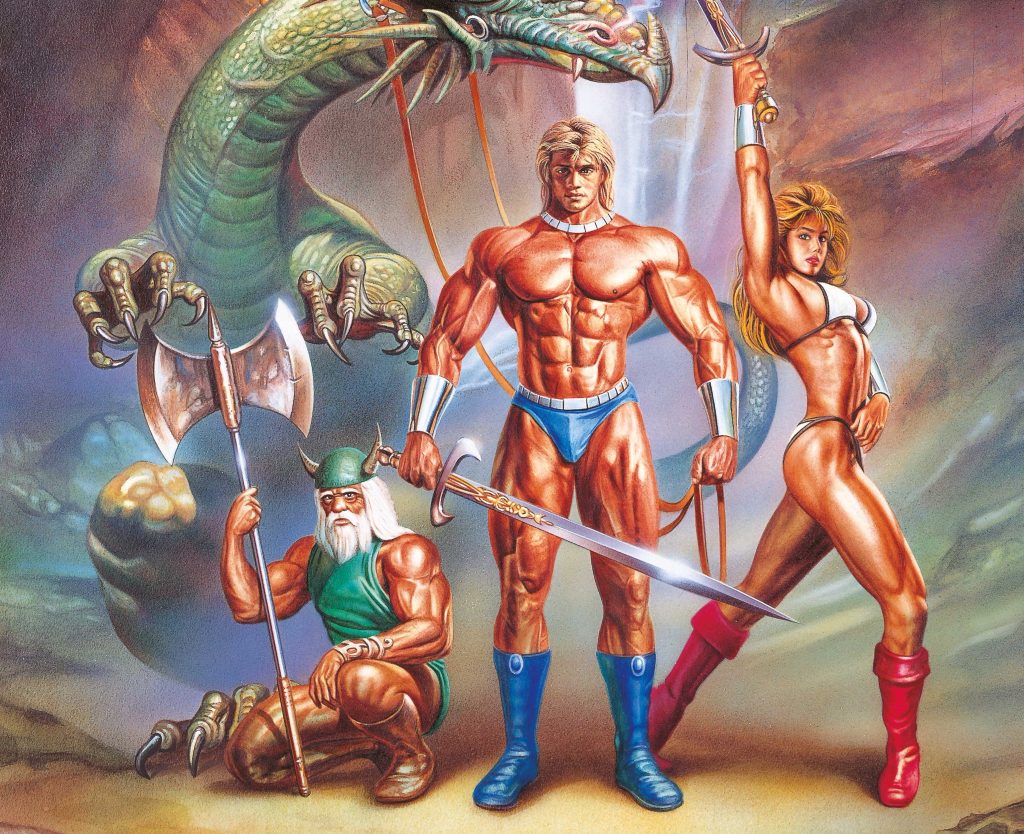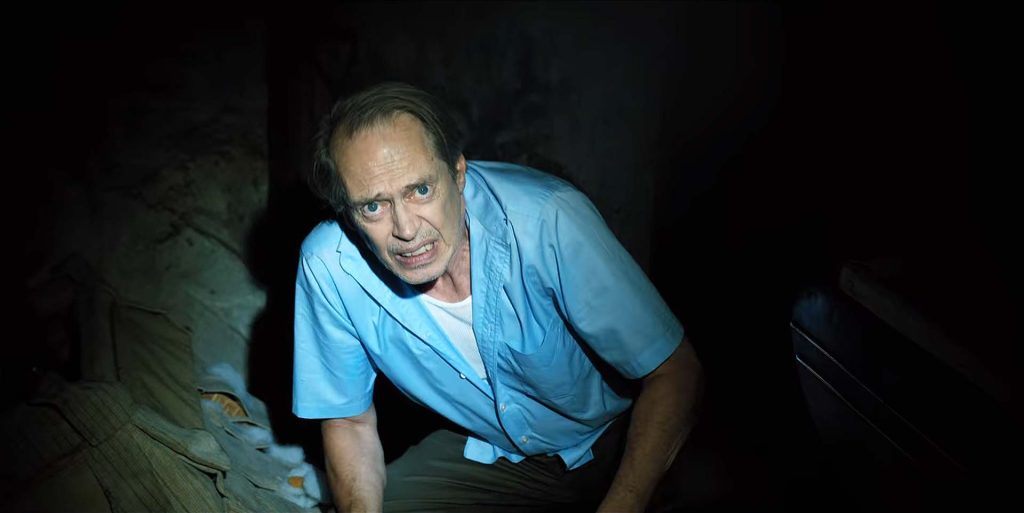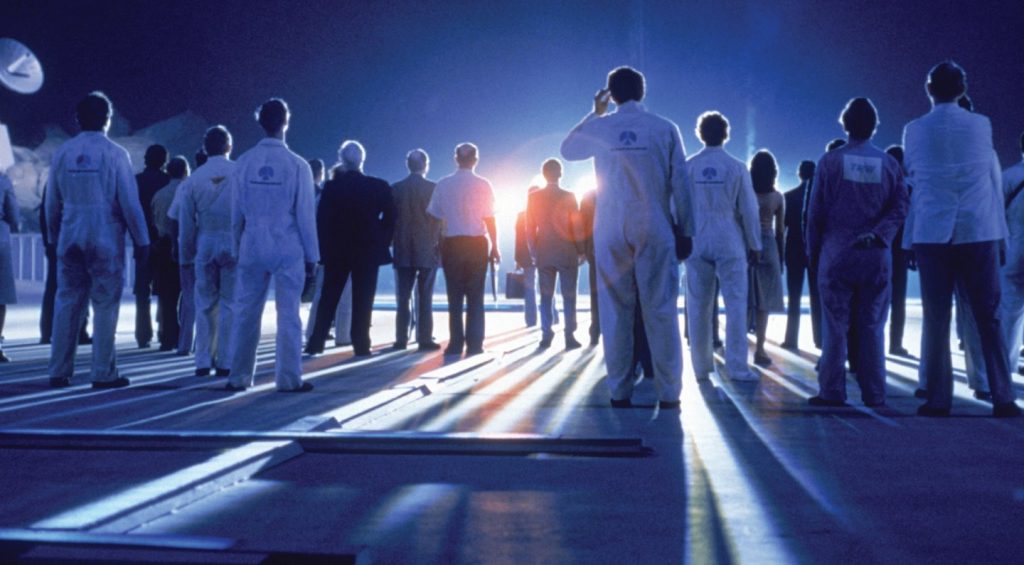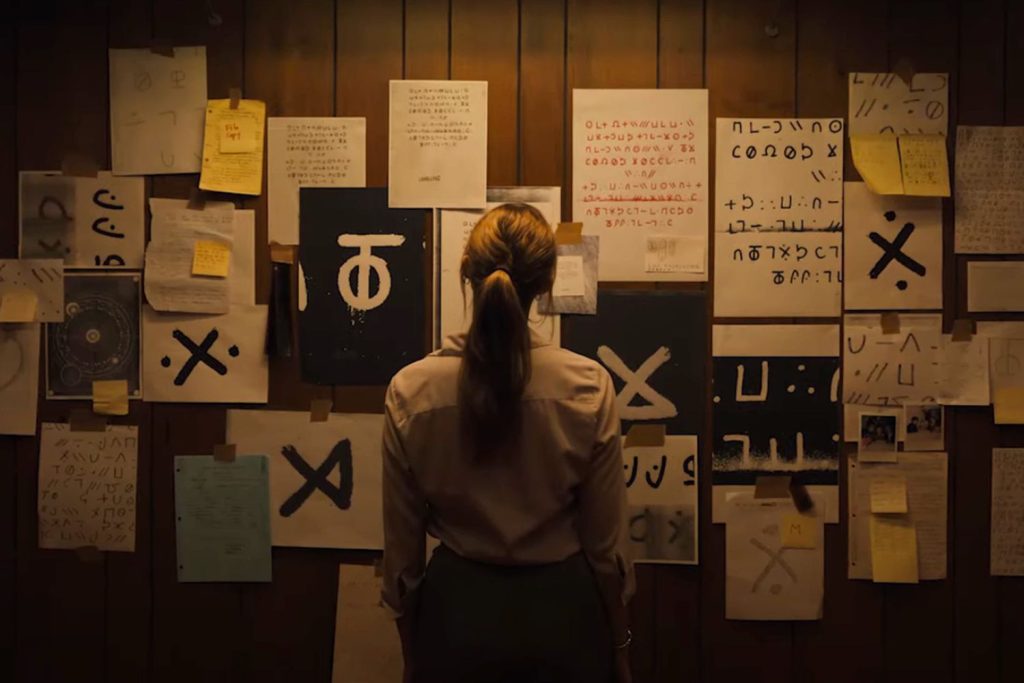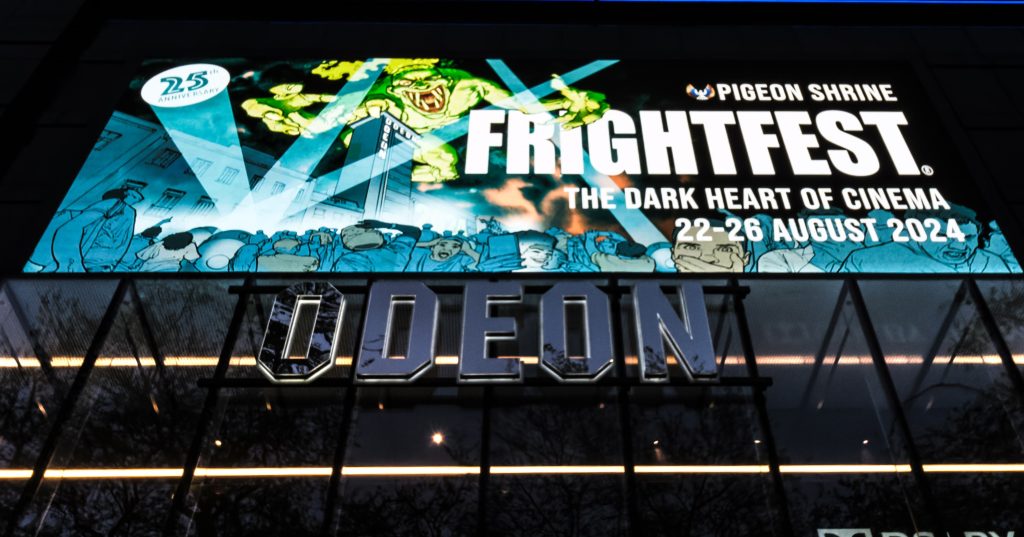 Just as Doctor Who is the kind of television series wherein it’s possible to tell the kind of stories that you just wouldn’t be able to tell anywhere else, it’s also true that there are certain kinds of stories that you just can’t fit into the Doctor Who format – and the most successful Doctor Who stories (given that no stories are truly original) are the ones which the authors have managed to adapt in some way so as to make them uniquely Doctor Who, in spite of being stories that you otherwise would have been able to tell elsewhere. But Steven Moffat is the kind of writer who not only won’t accept that he has to abide by the rules, but will from time to time actively go looking for the rules in order deliberately to break them. And so we have Heaven Sent, with its two most obvious talking points, but which is so much else besides those things.
Just as Doctor Who is the kind of television series wherein it’s possible to tell the kind of stories that you just wouldn’t be able to tell anywhere else, it’s also true that there are certain kinds of stories that you just can’t fit into the Doctor Who format – and the most successful Doctor Who stories (given that no stories are truly original) are the ones which the authors have managed to adapt in some way so as to make them uniquely Doctor Who, in spite of being stories that you otherwise would have been able to tell elsewhere. But Steven Moffat is the kind of writer who not only won’t accept that he has to abide by the rules, but will from time to time actively go looking for the rules in order deliberately to break them. And so we have Heaven Sent, with its two most obvious talking points, but which is so much else besides those things.
This isn’t a story which needed to be told. In a series which has already included one Clara-lite episode, we might easily have gone from the end of Face the Raven to the Doctor teleporting onto Gallifrey without batting an eyelid, and nobody would have thought there was something missing in between. But what television producer, when presented with an actor of Peter Capaldi’s assurance, wouldn’t want to throw the world this kind of gift? To say that Capaldi holds the attention throughout would be to damn him with faint praise; this is a tour de force acting performance the likes of which Doctor Who has never previously seen and probably never will again (the single-hander conceit being one that it is unwise ever to repeat) – it’s not that you couldn’t imagine the other actors who’ve played the Doctor being able to play this kind of episode, simply that you couldn’t imagine anyone writing it for them. Heaven Sent is completely constructed around the performer to the extent that now it exists, it’s difficult to remember a time when it didn’t.
We were also presented with a cliffhanger that was destined from the moment the episode started, the twist being not so much what was behind the impenetrable wall, but the leap of logic the Doctor needs to make to get there. Like Listen in reverse, and filled with many of the themes of that episode (not least the chalk boards), here “Home” is the destination rather than the starting point, and the journey the Doctor undertakes is one of defining ambiguities rather than casting uncertainty on definitives. The moment of realisation is one that we saw before in The Day of the Doctor, the Time Lord recognising that a single act won’t carry the day whereas the accumulation of repeating that act will; almost as if Steven Moffat has realised where he falls short and made an asset of it rather than allowing it to become a problem – a motif of his writing both in this series and elsewhere. Whereas in episodes like Sleep No More the unconvincing elements remain unconvincing because of their lack of conviction, when Moffat himself encounters a problem in his writing he draws attention to it and dares the viewer to argue (and of course, many of them do). The resolution to the Doctor’s problem in Heaven Sent arrives thanks to information we haven’t been a party to, but rather than attempting to bury it Moffat places it right out in front of us and gets away with it because his actor’s being so bloody good. It’s wilful and unexpected and fortunately the episode is strong enough to withstand it; like the time paradox in The Big Bang or the teleport in Flesh and Stone, we just accept that’s the way things are and enjoy the ride we’re being taken on. And it takes a certain stretch of the imagination to plant the Doctor back on Gallifreyan soil and make him vengeful, but Moffat – whose Doctor Who has been pointing in this direction ever since he took over – is never one to take the obvious route. This is the kind of Doctor Who that the children of 2015 will be talking about in the same hushed tones as those of us of a certain age talk about The Ark in Space, or Genesis of the Daleks. The kind of “grown-up” Doctor Who that the 1970s were abundant in, and that fires the fertile imaginations of those who are young enough to really appreciate it.
It’s also a beautifully understated piece of direction from Rachel Talalay, who shoots the whole thing as unfussily as possible knowing full well that a second layer of complication on top of the one Moffat has already created could have killed the story. It’s the second series in a row to confine a character inside a Matrix substitute (which given what happened to Donna Noble and subsequently, and especially, River Song in Forest of the Dead should come as little surprise) in the penultimate episode, and although both this and Dark Water take place in much more delineated spaces than The Deadly Assassin did, Talalay is careful not to allow the environment to become overwhelming for the viewer. The score feels even more ubiquitous than usual and in an episode of extended length, but very much takes its cues more obviously from classical music, by way of highlighting the Doctor’s solitude and the surroundings chosen in which he should spend it.
Heaven Sent isn’t perfect, and in some ways Steven Moffat has – despite having to work harder to simplify his episode to such an extent that the whole thing can be carried almost singlehandedly by his leading man – used the concept as a camouflage by which he can smuggle in some audacious retconning; the showrunner managed to stay on the right side of the line in Listen and The Name of the Doctor, elaborating on the Doctor’s pre-An Unearthly Child past without changing it, but Heaven Sent appears to indicate that Series Nine is fully prepared to change what we think we know about Doctor Who, and from this angle that’s looking highly problematic. It might be 19 years now since the TV Movie introduced the concept of the Doctor being half-human, but if that indeed is where Hell Bent is going to go, there will be an awful lot of angry words exchanged on the internet about it. By making Darth Vader Luke’s father in The Empire Strikes Back, George Lucas tied together two disparate strands of story in a way that gave the central character a moral ambiguity and added impetus to his undertaking, and ultimately that satisfied fans of the films; if Moffat has decided to square the hole that the eighth Doctor left by altering the circumstances of fifty-plus years of television – rather than an apparent situation at the end of a single film – it isn’t going to sit well. It may be a red herring, or an inference that isn’t there to be drawn; we’ll see. It is incumbent upon the showrunner to use the tools at his disposal, but by the same token he needs to do so in a way that allows for his successors an open field to do the same.
Like many of the best Doctor Who stories, Heaven Sent takes its influences from without – notably films like Dark City and The Fountain – and enfolds them within the Doctor Who universe (using the example of Toby Whithouse’s episodes as a foreshadowing of the bootstrap paradox that’s at work here) in a way that’s unique to the architecture Steven Moffat has been building around the series. You couldn’t imagine this episode having been written by anybody else; not because nobody else would be capable (although they’d never have done it in quite the manner it’s done here), but more likely because nobody else would have considered it. It’s suffused with the idiosyncrasies of the last six years of the series, but transcends them by virtue of its conceit.
Heaven Sent isn’t going to win over those casual viewers for whom Doctor Who needs the presence of an eye-catching and younger leading man (and since the casting of David Tennant, that’s now a significant portion of the series’ audience; strange how this fusty old programme is currently seen by some as that kind of show), but it will hopefully earn Peter Capaldi the respect of any residual doubters, and it’s proof – along with the rest of Series Nine – that even after six years Steven Moffat still hasn’t run out of new places to take the programme. On top of all that, we got to see the Doctor talk a door into opening (not as silly as it sounds given where the episode takes place), and the literal and metaphorical end of the corridor. Like the two-parter that opened the series this year, Heaven Sent is not without its flaws, but is a masterpiece nevertheless.

